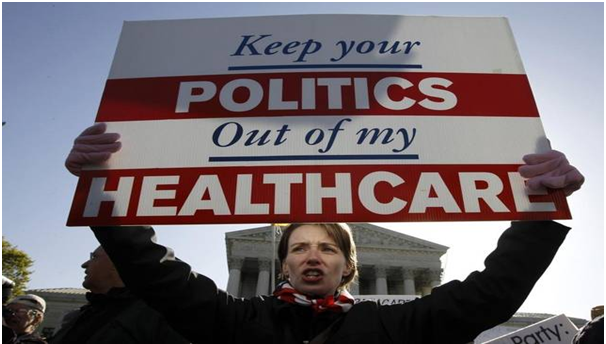Why Repealing Obamacare Won't Be As Bad As You Think

NEW DELHI: House Speaker Paul Ryan said that the incoming GOP Congress’ first order of business will be to repeal the Patient Protection and Affordable Care Act (PPACA), or ObamaCare as we know it. “Well, the first bill we’re going to be working on is our Obamacare legislation,” Ryan told CBS’ 60 Minutes. Although Ryan himself was light on specifics, the cornerstone of President-elect Donald Trump’s campaign revolved around the repealing of ObamaCare.
The ObamaCare Act was passed by the United States Congress on 23rd March, 2010. This was one of the main highlights of the Obama presidential regime, which helped in overhauling the pre-existing disparity in the way medical aid was being dispensed.
The act came into force in the backdrop of the US having a relatively low lifespan birth rate as compared to other developed nations. This was coupled with the exorbitant prices the average American citizen was having to pay for his medical aid. In fact a survey showed that the US spent more on healthcare than any other country, which was surprising given the mediocre results. Something had to be done to improve the overall health care, control costs and issue more people.
This was the bedrock against which the Obamacare was enacted. The act does mainly two things- expand access to health insurance, and change the way the Federal Government pays doctors. Over the next decade, federal budget forecasters expect that 25 million people will gain health coverage because of Obamacare. And about 17 million people have so far become insured since the expansion started in 2014.
The number of people with insurance is rising because of three main provisions in the law:
- The expansion of the Medicaid program which provides health coverage to low income Americans.
- The creation of online insurance exchanges, which would be done via web portals, where Americans can shop for coverage, based on their needs.
- The individual mandate, which requires nearly all Americans to avail health care under the act, or pay a penalty. This was done to encourage more people to avail healthcare, and balance out the costs that the Federal Government was incurring.
So why does President-elect Trump want to repeal the act?
Despite the plausible gains, there are loopholes in the act which haven’t been addressed. This has led to millions of people being forced out of their previous plans, and having to pay premiums which are increasing by double-digits. This has even affected the insurance companies themselves, who ended up losing billions of dollars because many healthy middle class Americans did not want to avail ObamaCare.
Furthermore, the provision of individual mandate has left many Americans displeased. As per the act, citizens would have to pay a penalty if they did not prescribe to the said healthcare. There have been numerous court cases as well, where the constitutionality of certain provisions of the Act was brought into question.
James Capretta of the American Enterprise Institute, has been vocal in his criticisms of the ObamaCare Act, and has even suggested reforms to put the preferences of the consumers and the insurance companies, under one bracket.
So there has been a lingering air of doubt on whether the act does indeed solve the healthcare problem. There have been speculations from the very beginning that the act may invariably end up being repealed by future Congresses.
The Conservatives, since the beginning of the act, have persistently asked for it to be repealed, and have now found voice in the form of Donald Trump. They claim that there was a huge spending commitment that had been taken on by the departing Obama government to ensure uniform healthcare. A study shows that the health law’s insurance expansion costs over $1 trillion over the next 10 years. This has all the more become important, especially given the rising income gap between the rich and the poor.
Trump, despite being vocal about repealing the act, has in fact maintained, that he wants to keep certain provisions of the act like coverage of young adults up to age 26 and coverage for people with pre-existing conditions.
He does, although, want to do away with the individual mandate provision. This also goes down well with his voters, as a recent Kaiser Poll has shown that only 35 percent say they have a favorable opinion of the individual mandate.
“I would absolutely get rid of Obamacare,” Trump said in a February 25 during the Republican primary, but “I want to keep [the provision regarding] pre-existing conditions.
Avik Roy, President of the Foundation for Research on Equal Opportunity, has voiced his opinion in favor of Trump, stating that certain provisions of ObamaCare do indeed need to be done away with.
Such repealment or replacement doesn’t come without complexities though. Some writers like Harry Enten have advocated that getting rid of the individual mandate would be to say, as he puts it, “I want all the bridges and roads without the taxes to fund them.”
What does indeed need to be recognized is that though disrupting the status quo could end up being controversial, there does exist scope for improvement. There’s no doubt that an element of skepticism surrounding the Trump administration exists, yet there remains a silver lining amongst all this confusion. There’s no disproving that the ObamaCare has its own fallacies, the overcoming of which would benefit a vast majority of Americans. Only time will tell whether the new Trump regime can successfully cater to the needs of the masses.



